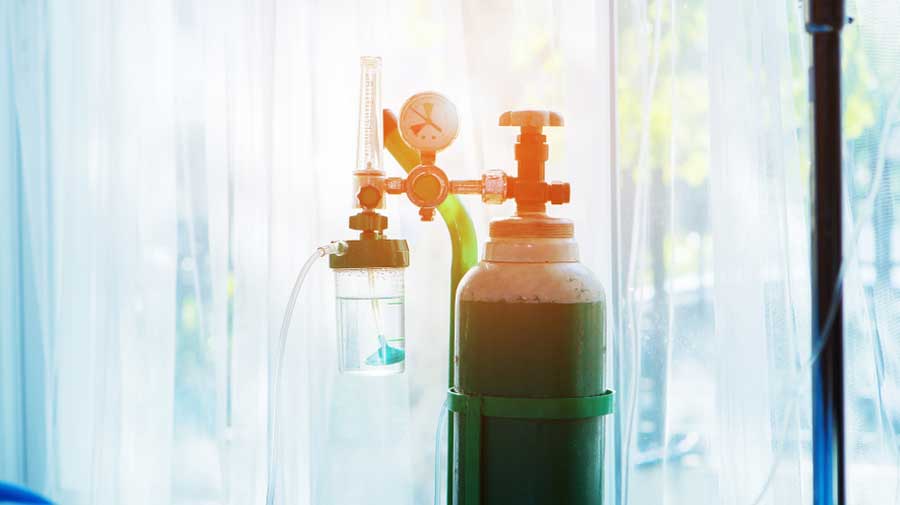The Centre on Monday ordered oxygen audits and expedited licenses for medical oxygen manufacturers after a near three-fold increase in the demand for oxygen-supported beds for coronavirus disease patients over the past 45 days.
The Union health ministry has asked all states and Union territories to plan hospital-by-hospital oxygen inventory management and timely replenishments to prevent any stockouts and conduct oxygen audits to ensure that only patients who need oxygen receive it.
Health secretary Rajesh Bhushan, in an online meeting with the industry and pharmaceuticals secretaries and health officials from states and Union Territories, also iterated the need to ensure adequate oxygen supply to hospitals through unrestricted transport.
The states have been asked to introduce real-time monitoring of cryogenic tankers that transport oxygen, re-purpose argon and nitrogen tankers to supply oxygen, and coordinate with steel plants as additional sources for the procurement of oxygen.
Steel plants can provide 550 metric tonnes of oxygen per day in addition to oxygen manufacturing companies that provide 6,400MT per day, the ministry said.
The ministry has also urged the states to expedite the grant of licenses for the production of medical oxygen to companies that are already producing industrial oxygen.
The multiple steps to bolster oxygen supply to hospitals across the country comes against the backdrop of a steady increase in the demand for oxygen-supported beds for Covid-19 patients.
The proportions and numbers of Covid-19 patients needing oxygen have increased over the past four months — 34,004 patients (3.7 per cent of 919,018 active patients under medical supervision) were on oxygen support on September 11, compared with 12,186 patients (2.32 per cent of 528,242 active cases) on July 31 and 712 patients (1.88 per cent of 37,916 active cases) on May 9.
Medical experts expect the demand for oxygen-supported beds to continue rising as long as India’s epidemic continues to grow.
India on Monday recorded 92,071 new cases, raising the total number of infections to over 4.84 million, of whom 3.78 million patients have recovered and 79,722 have died.
The number of active patients on Monday was 986,598, an overnight rise of 13,423. If 3.7 per cent of active patients need oxygen support, that increase would translate into an overnight demand for 497 extra oxygen-supported beds.
Public health specialists are concerned that the number of patients and the demand for oxygen will increase across the country, even in rural areas, as the epidemic spreads.
Union health minister Harsh Vardhan on Monday told Parliament that the country’s coronavirus epidemic has moved beyond travel-related cases and local clusters into widespread infections across urban and rural areas.
“We have now moved from managing travel-related cases to containing clusters and large outbreaks due to local transmission to wide spread of infection to urban, peri-urban and rural areas,” Vardhan said in a “suo motu statement” on the government’s response to the pandemic.
Vardhan said the pandemic would require “concerted efforts” by the government and “people’s participation” to curb large-scale illness and mortality from Covid-19.











